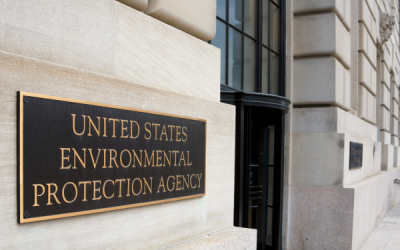ICYMI: The 2018 Farm Bill expired on Monday night, September 30. And this was after it had already been extended by one year.
Is anyone surprised? Within the last year, Congress could have written a new farm bill. Or it could have passed another extension. But it did neither.
It’s the end of the world these programs as we know it: New sign-ups for CRP, EQIP projects, Grassland Conservation, MAP and FMD trade promotion, Food for Progress, animal health, bioenergy, speciality crop grants, organic certification, and beginning farmer programs have all come to a screeching halt.
Meanwhile, the federal crop insurance program doesn’t need to be reauthorized by a farm bill. And SNAP, aka most of the farm bill, has been “reauthorized through appropriations bills and continuing resolutions.”
Happy New Year, let’s party like it’s the 1940s! On January 1, price support programs will go back to how they were written in the 1940s. This law gives support built on a parity price from 1910-1914, which doesn’t consider productivity gains and technology advancements made in ag. This will hit dairy especially hard, as the USDA will start ramping up milk prices.
Soundbite: “Forcing our farmers to plan for next year’s crop without any idea of what’s happening is poor policy. Our legislators should be more concerned about supporting production agriculture, promoting soil conservation, and feeding hungry kids than they are about going home to campaign.” — Iowa Democratic Party Chair Rita Hart
Where this goes: While a new farm bill was needed days ago—and really more than a year ago—it’s unlikely that one will be passed before the November election.
Short Corn Packs a Punch
Dynamite comes in small packages—which can be true with new seed technology. What’s...
Congress to EPA: What’s Your BEEF with Meat Packers?
The Environmental Protection Agency (EPA) is considering new regulations that take aim at meat and poultry processors.
And some members of Congress have a BEEF with the EPA’s proposals.
The proposed rules: In late January, the EPA released the details of its proposed “Clean Water Effluent Limitations Guidelines and Standards for the Meat and Poultry Products Point source category.”
Huh?
Basically, the EPA formally published its proposals to combat wastewater contaminants that come from slaughterhouses.
Okay… that makes more sense.
At the heart of the rules proposal is a concern from environmental groups about nitrogen and phosphorus pollutants that originate from slaughterhouses. In some cases, the wastewater goes directly into waterways. In other cases, the water goes to municipal wastewater treatment facilities.
But not everyone is on board with the EPA’s suggestions…
Congress responds: Last week, two U.S. representatives—Eric Burlison (MO) and Ron Estes (KS)—pushed back against the EPA and introduced the “Banning EPA’s Encroachment of Facilities (BEEF) Act.” If passed and signed by President Biden, the law would prohibit the EPA from finalizing, implementing, or enforcing the rule.
According to the lawmakers, the proposed rules place undue burden on small processors—costs that can be absorbed by larger companies.
Soundbite: “The… proposed regulation isn’t just an attack on family-run small businesses, it’s an attack on rural communities,” said Burlison. “These meat and poultry processors are the lifeblood of our communities. The BEEF Act… lets these hardworking Americans do what they do best, produce safe, affordable food for our families.”
University of Illinois Makes Big Mooves in Milk Production
Pump it up: Scientists led by Matt Wheeler at the University of Illinois Urbana-Champaign are...




